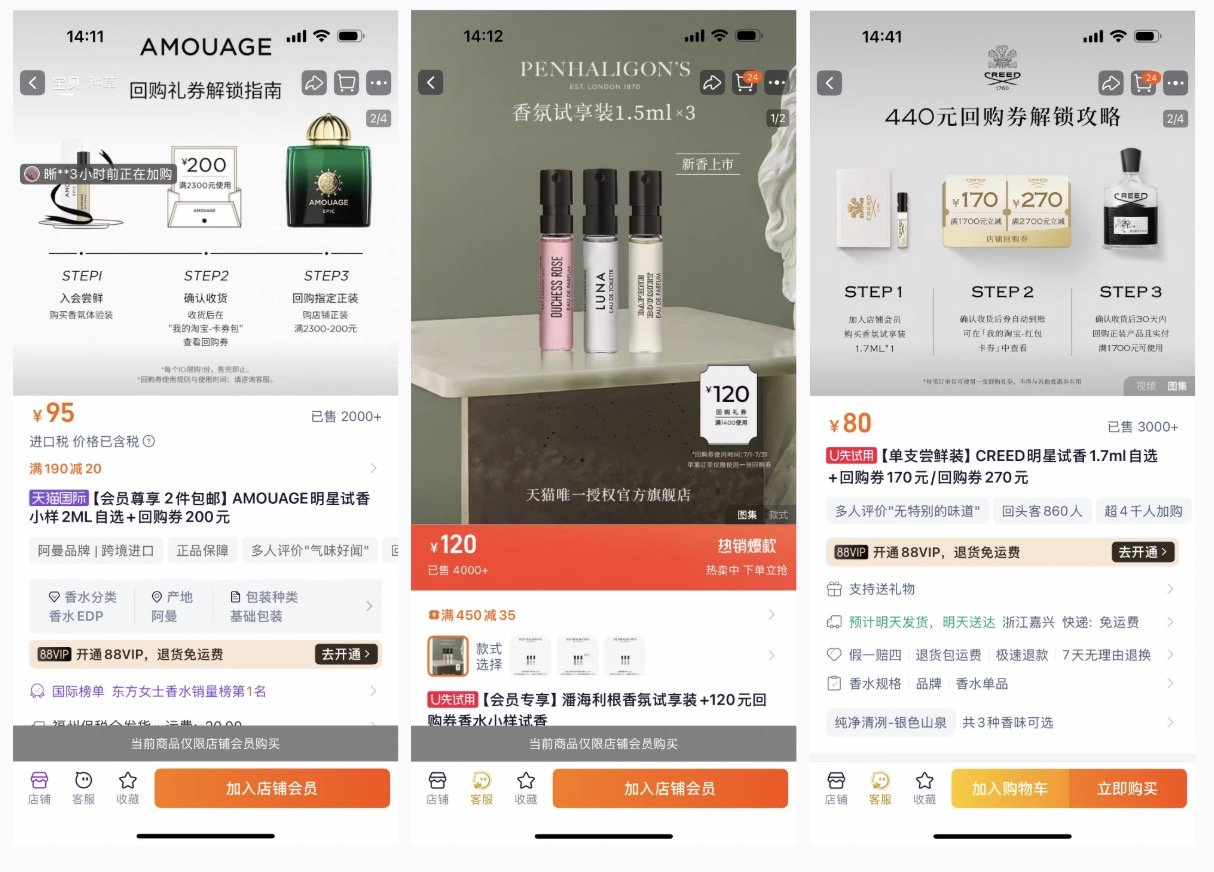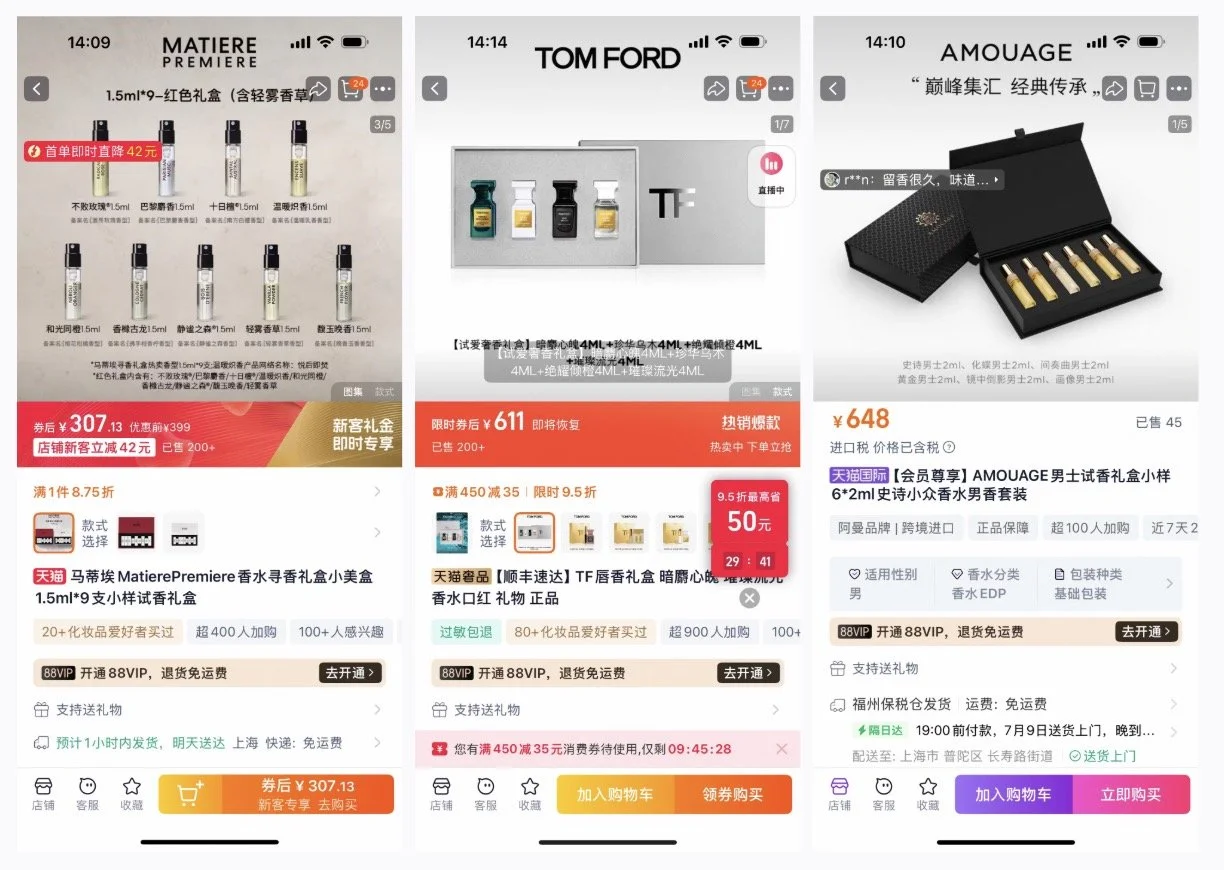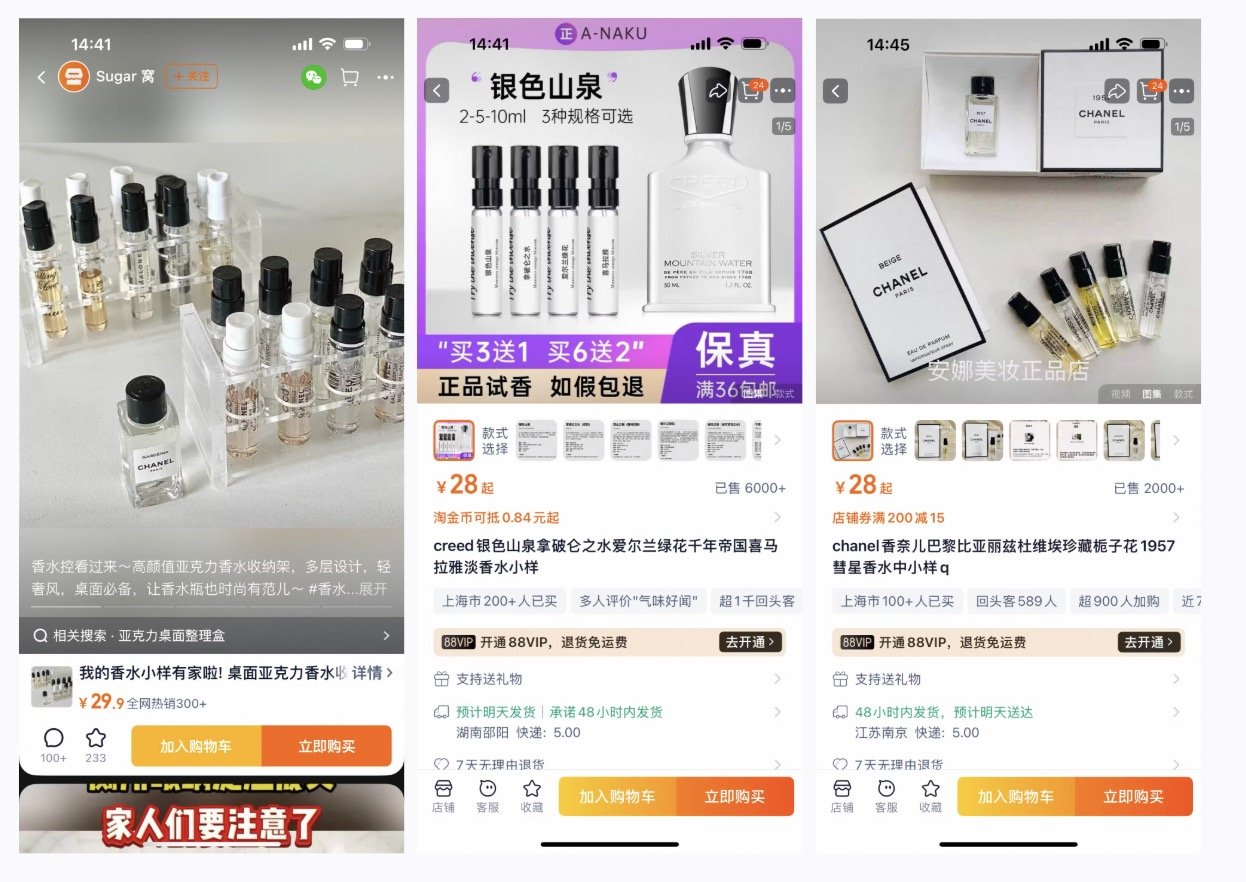How to Launch a Perfume Brand in China
The perfume market in China has become one of the most promising categories for foreign brands. Historically, perfume wasn't widely used in China. But today, things are different.
This shift has created a huge opportunity. We see a wave of foreign perfume brands entering the market. Malls are moving perfume counters to prime locations, and a whole ecosystem of influencers and specialized shops is emerging. So, how can your brand capture a piece of this growing market?
Kerry Center in Shanghai is one of many shopping malls in China that shifted much of their focus on perfume.
Cross-Border
For most perfume brands, selling online via cross-border e-commerce is the best way to start. Selling your products domestically in China requires a cosmetic certification, which is a long process, taking six to twelve months.
Cross-border sales allow you to enter the market quickly. You can set up a store on a platform like Tmall Global and start selling right away. This approach is great for testing the market and figuring out which products will be popular. If your brand finds success, you can then start the domestic certification process while continuing your cross-border sales.
The Challenge of Selling Online
The biggest challenge with selling perfume online is that customers can't test the product. A common mistake brands make is only offering full-size bottles. This won't work. People won't buy a scent they haven't tried.
To succeed, you must offer samples. Most brands sell small, 1.5 to 2ml samples, either individually or in sets. Because you cannot ship products for free from a cross-border warehouse, these samples must have a price. However, you can offer customers a discount on a full-size bottle later. This makes the sample essentially free for customers who go on to make a purchase. This strategy gives customers a low-risk way to experience your products before committing to a larger order.
Most perfume brands will offer samples for purchase in their online shop.
You should also consider offering a "welcome kit" or "starter set" of your top-selling perfumes. This is a great way to introduce customers to a range of your products at once.
Tom Ford, Amouage and Matiere Premiere are just a few examples of foreign brands selling sets of perfume in China.
But what about perfume brands that don't want to offer samples for sale, or established brands for which selling samples doesn't fit their strategy? They use a different approach: they use authorized—or, often, unauthorized—distributors who produce small samples and sell them in third party shops. Customers typically buy these samples from third-party sellers, then visit the official store to purchase the full-size perfume. Well established brands can usually count on this system.
Chanel does not sell samples. So what can customers do? They can buy samples from third-party online shops and then visit the flagship store to purchase the full-size perfume.
Finding Your Hero Product
You need to know which of your perfumes will be most popular in China. This is often different from your other markets. Before you launch, it's wise to conduct a testing campaign with influencers, beauty experts, and consumers. Identify your hero products—the few key scents that will drive the most sales. In a new store on Tmall, it's common for just one or two hero products to account for 80-90% of all sales. Focusing your marketing budget on these products is crucial.
Influencers
You cannot succeed without working with influencers. The Chinese internet is a separate ecosystem, and platforms like WeChat, RedNote, and Douyin are where consumers discover new products. People won't buy a perfume based on a paid ad alone. They need social proof and trusted reviews.
Example of a promotional post for perfume featuring one of the most reputable perfume influencers in China
Small and Medium-sized Influencers: Start with these. They help you collect initial feedback and create a lot of valuable content. While they might not drive a ton of direct sales, their reviews and posts create the foundation of your online presence.
Large Influencers: These are the people who will truly launch your brand. When a big influencer promotes your perfume, people will check social media to see what others are saying. The content you created with the smaller influencers will validate the purchase and drive sales.
When promoting a perfume brand in China, work with perfume-industry influencers rather than general influencers. Focus on convincing perfume enthusiasts first: earn their approval and recommendations, then expand to broader audiences. Establishing your brand as high-quality among enthusiasts is a necessary first step that brings long-term value. Remember followers aren’t just a number—quality matters, and specialist perfume influencers reach the most relevant audience.
Some of the more popular perfume influencers in China will charge you 5-10,000 EUR for a post.
By working with influencers at every level, you can build a strong, authentic brand image that resonates with Chinese consumers and turns a simple curiosity into a purchase.
There are (many) more steps involved, but nailing the fundamentals above will give you a strong start. Get in touch to learn more.





